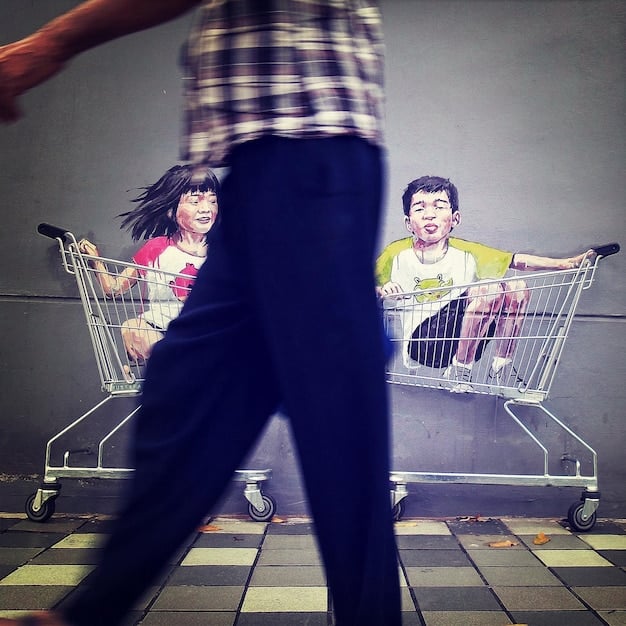The Power of Personalization: Transforming Fashion in the US

The Power of Personalization: How Customization is Shaping Fashion in the US is revolutionizing the fashion industry, allowing consumers to co-create and express their unique identities through personalized clothing, accessories, and shopping experiences.
Dive into the world of The Power of Personalization: How Customization is Shaping Fashion in the US, where individuality reigns supreme. Discover how brands are empowering consumers to design their own styles and experiences, creating a more personal and engaging relationship with fashion.
The Rise of Personalized Fashion
Personalized fashion is more than a trend; it’s a paradigm shift. In the US, consumers are increasingly demanding products and experiences that reflect their unique tastes and preferences. This demand is fueling a surge in customization options across the fashion industry.
From made-to-measure clothing to bespoke accessories, personalization is empowering individuals to express their identity through what they wear.

Why Personalization Matters to Consumers
Several factors drive the growing demand for personalized fashion.
- Individuality: Consumers want to stand out and express their unique identities.
- Exclusivity: Personalized items feel more special and valuable than mass-produced goods.
- Fit and Comfort: Customization can ensure a perfect fit, enhancing comfort and confidence.
- Ethical Concerns: Some consumers see personalized fashion as a way to reduce waste by ordering only what they need.
Personalization allows consumers to be part of the creation process, fostering a deeper connection with the brands and products they choose.
The rise of personalized fashion reflects a broader cultural shift towards self-expression and individuality. As consumers become more discerning, they seek out brands that value their unique identities.
Technology’s Role in Customization
Technology is a key enabler of personalized fashion, providing the tools and platforms needed to design, create, and deliver customized products and experiences.
From 3D printing to augmented reality, technological innovations are transforming the way fashion is designed and consumed.
3D Printing and On-Demand Manufacturing
3D printing allows for the creation of highly customized clothing and accessories, with minimal waste and lead times.
On-demand manufacturing enables brands to produce garments only when they are ordered, reducing unsold inventory and environmental impact.
AI-Powered Design Tools
Artificial intelligence is being used to analyze customer preferences and generate personalized design recommendations.
AI algorithms can also optimize garment fit and construction, ensuring a perfect fit for each individual.

Augmented Reality (AR) and Virtual Try-On
AR technology allows consumers to virtually try on clothing and accessories before making a purchase, reducing the risk of returns.
Virtual try-on experiences can also enhance the personalization process by allowing customers to see how different design options will look on their body.
Technology is revolutionizing the fashion industry, making personalized design and production more accessible and efficient.
By embracing technological innovation, fashion brands can meet the growing demand for customization and create more engaging experiences for their customers.
Brands Embracing Personalization
Many fashion brands are recognizing the power of personalization and incorporating customization options into their business models.
From luxury retailers to fast-fashion brands, companies are experimenting with different approaches to personalized fashion.
Nike By You
Nike By You allows customers to design their own shoes, choosing colors, materials, and even adding personalized text.
This program has been hugely successful, demonstrating the demand for personalized footwear.
Levi’s Tailor Shop
Levi’s Tailor Shop offers in-store customization services, allowing customers to alter and personalize their jeans with embroidery, patches, and other embellishments.
This service provides a tangible and personal shopping experience, fostering a sense of connection with the brand.
Stitch Fix
Stitch Fix is a personal styling service that uses algorithms and human stylists to curate personalized clothing boxes for each customer.
This data-driven approach allows Stitch Fix to provide highly relevant and personalized recommendations.
These are just a few examples of how brands are leveraging personalization to attract and retain customers.
By offering customization options, brands can differentiate themselves from the competition and build stronger relationships with their target audiences.
The Impact on Sustainable Fashion
Personalization has the potential to contribute to a more sustainable fashion industry by reducing waste and promoting responsible consumption.
By ordering only what they need and designing garments that fit perfectly, consumers can minimize their environmental impact.
Reducing Overproduction
Personalized fashion shifts the focus from mass production to on-demand manufacturing, reducing the risk of unsold inventory and textile waste.
This can lead to a more efficient and sustainable supply chain.
Extending Garment Lifespan
Customized clothing is often made with higher-quality materials and construction, increasing its durability and lifespan.
When consumers feel a personal connection to their clothing, they are more likely to care for it and keep it for longer, reducing the need for frequent replacements.
Empowering Ethical Consumption
Personalization can empower consumers to make more informed and ethical purchasing decisions.
By supporting brands that prioritize customization and on-demand manufacturing, consumers can contribute to a more sustainable fashion future.
Personalized fashion has the potential to revolutionize the fashion industry, making it more sustainable, ethical, and engaging.
By embracing customization, consumers can reduce their environmental impact and express their unique identities through what they wear.
Challenges and Future Trends
While personalization offers many benefits, there are also challenges to overcome.
Scalability, cost, and data privacy are among the issues that need to be addressed as personalized fashion becomes more widespread.
Scalability
Scaling up personalized production can be complex and challenging, requiring significant investment in technology and infrastructure.
Brands need to find ways to streamline the customization process and ensure efficient production across a wide range of options.
Cost
Personalized clothing and accessories often come with a higher price tag than mass-produced goods.
Brands need to balance the cost of customization with the value that consumers place on personalized products.
Data privacy
Personalization relies on collecting and analyzing customer data, which raises concerns about privacy and security.
Brands need to be transparent about how they collect and use data, and ensure that they comply with privacy regulations.
Despite these challenges, the future of personalized fashion looks bright.
As technology continues to advance and consumer demand grows, personalization is set to become an increasingly important part of the fashion landscape.
- AI-Powered Styling: Expect AI to become even more sophisticated in providing personalized style recommendations and design suggestions.
- 3D-Printed Clothing: As 3D printing technology improves, we may see more widespread adoption of 3D-printed clothing and accessories.
- Circular Fashion Models: Personalization will play a key role in circular fashion models, enabling consumers to recycle and upcycle their clothing in a more efficient way.
The Personalization Revolution: A New Era for Fashion
The Power of Personalization: How Customization is Shaping Fashion in the US is creating a new era where consumers are active participants in the design process.
This shift is empowering individuals to express their individuality, reduce waste, and build stronger relationships with the brands they support.
Personalization offers limitless opportunities for creativity and innovation in the fashion industry.
By embracing customization, brands can meet the evolving needs of consumers and create a more sustainable and engaging fashion experience.
| Key Point | Brief Description |
|---|---|
| 🎨 Individual Expression | Personalization allows unique style representation. |
| 🌱 Sustainable Choices | Reduces waste by producing based on demand. |
| 🚀 Tech Integration | Innovations like 3D printing drive custom designs. |
| 🛍️ Brand Engagement | Customization builds deeper consumer connections. |
Frequently Asked Questions
▼
Personalized fashion involves customizing clothing and accessories to reflect individual preferences, ensuring a unique fit and style.
▼
Technology enables personalized fashion through AI design tools, 3D printing, and augmented reality, making customization seamless and efficient.
▼
Leading brands like Nike, Levi’s, and Stitch Fix offer personalization services, allowing consumers to design and customize apparel.
▼
Personalization helps reduce waste by producing items on demand, extending garment lifespans, and encouraging ethical consumption.
▼
Future trends include AI-driven styling, increased 3D printing applications, and the integration of circular fashion models for sustainability.
Conclusion
As personalization continues to reshape the fashion landscape, its influence on consumer experiences and sustainable practices will only deepen. The power of customization lies in its capacity to empower individuals, reduce waste, and foster a more meaningful connection between consumers and brands, promising a future where fashion truly reflects personal identity and values.





